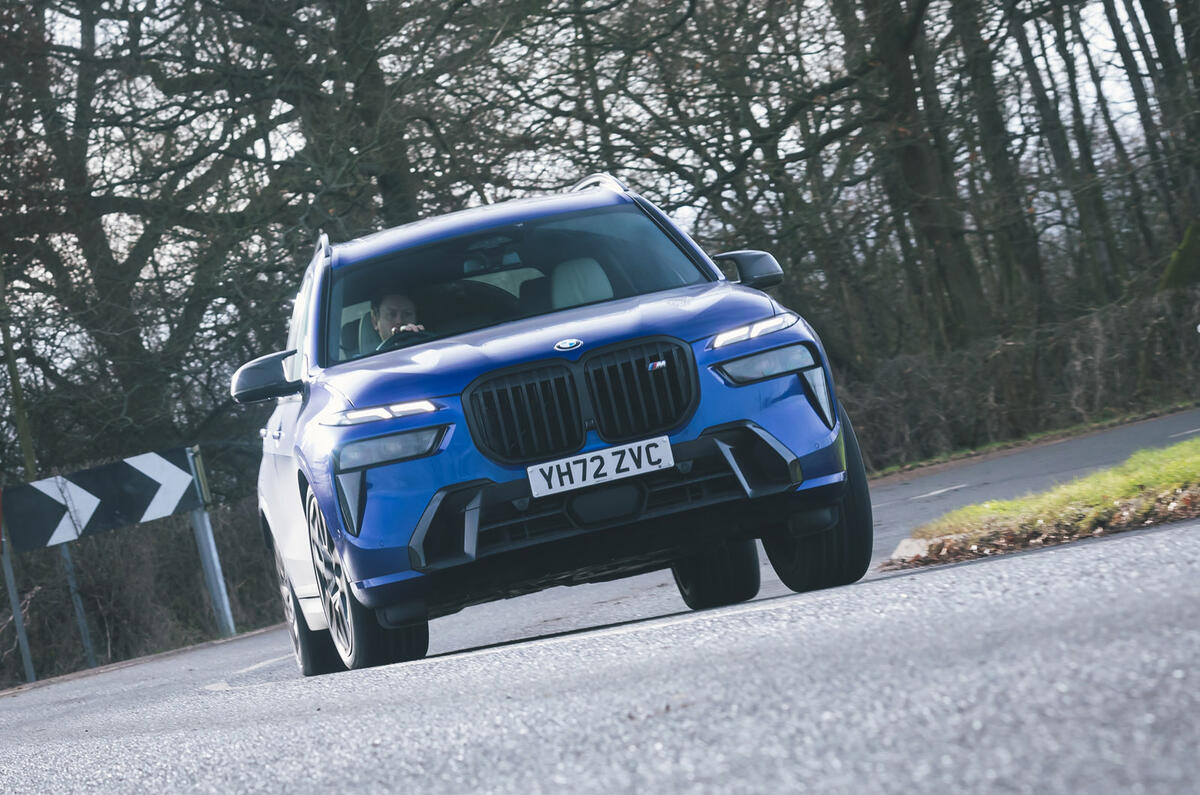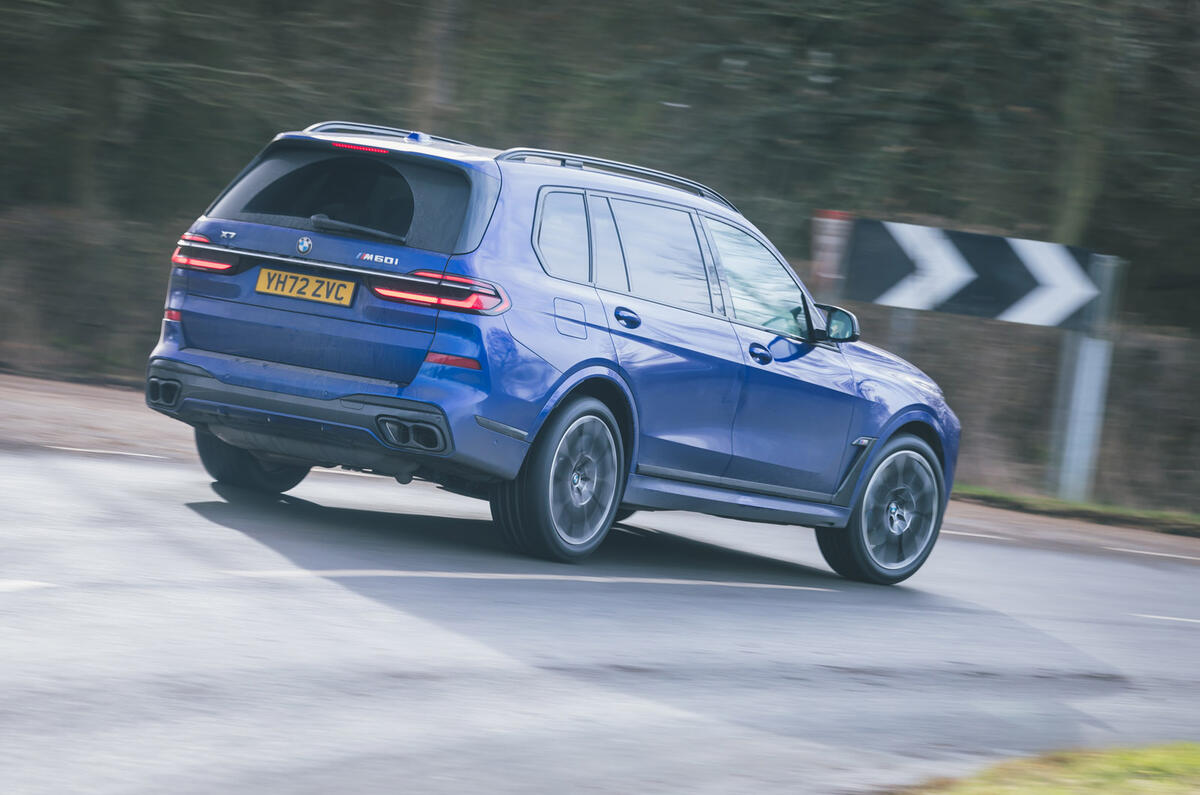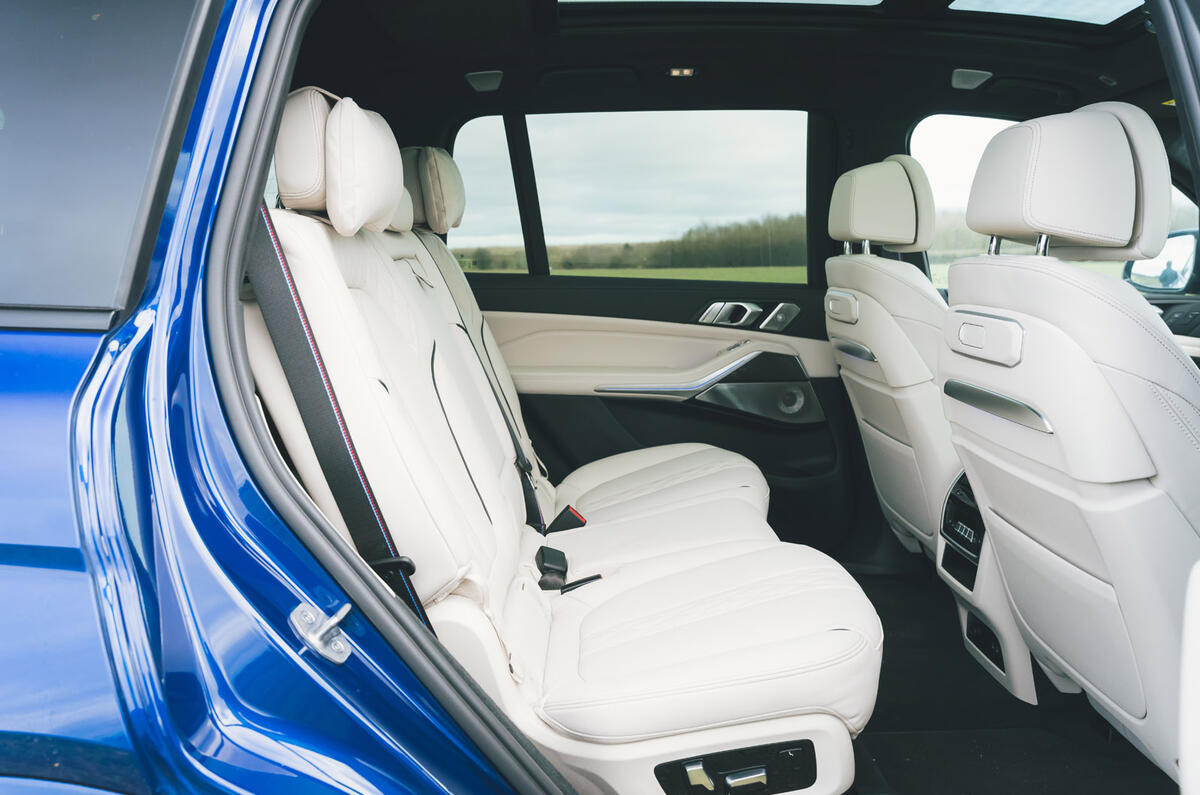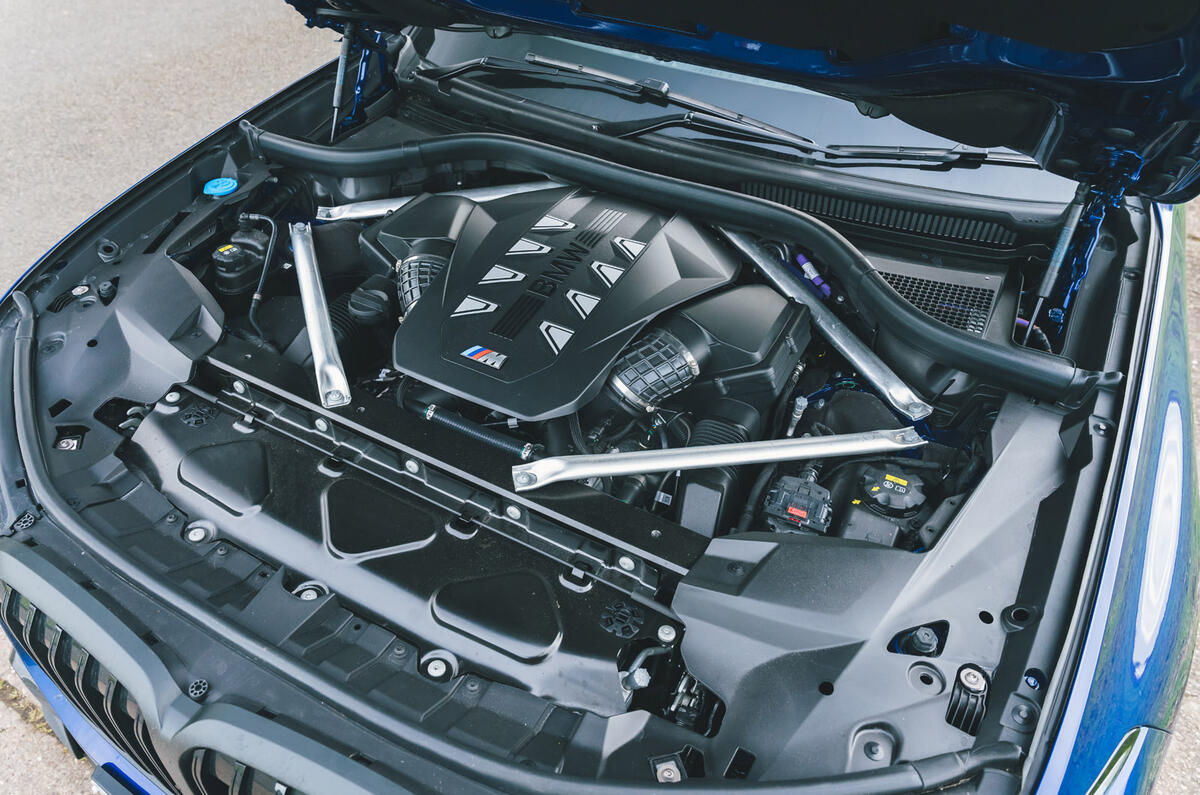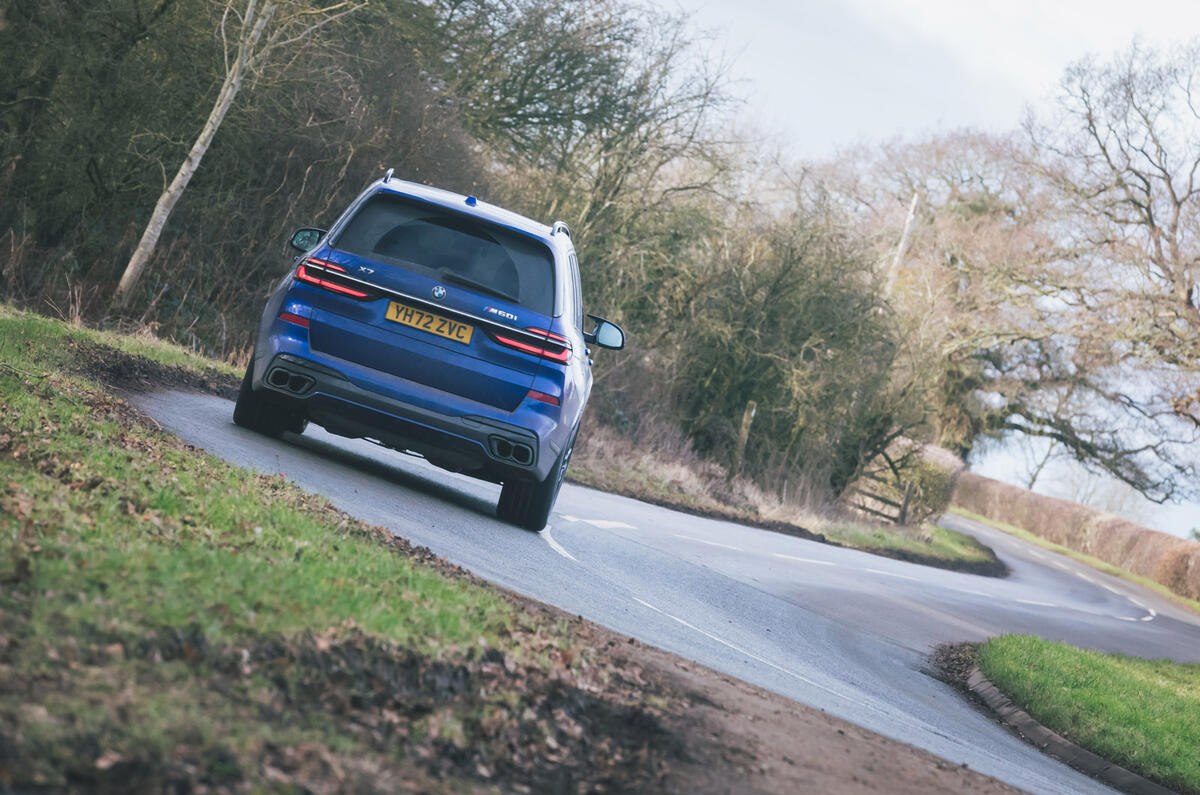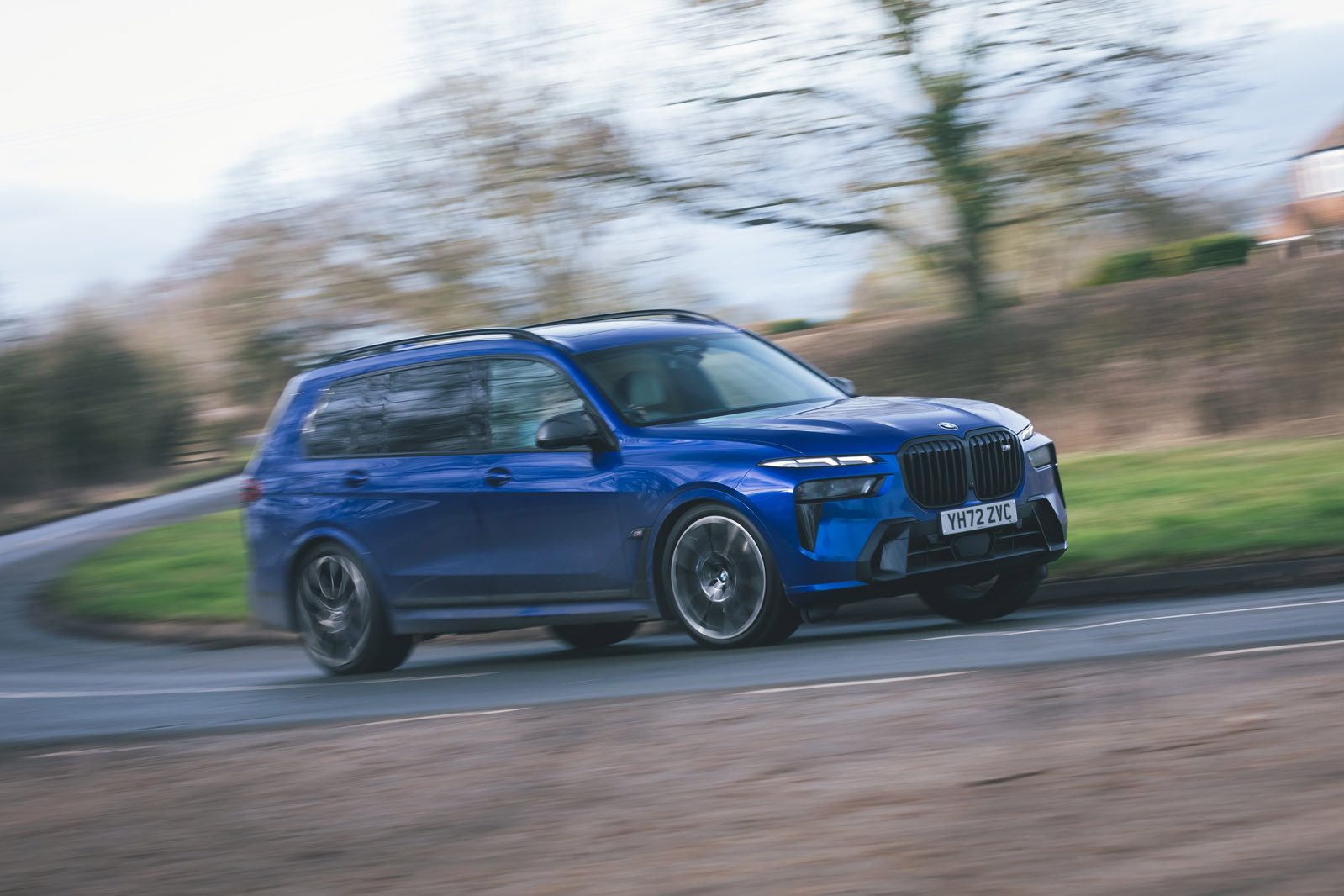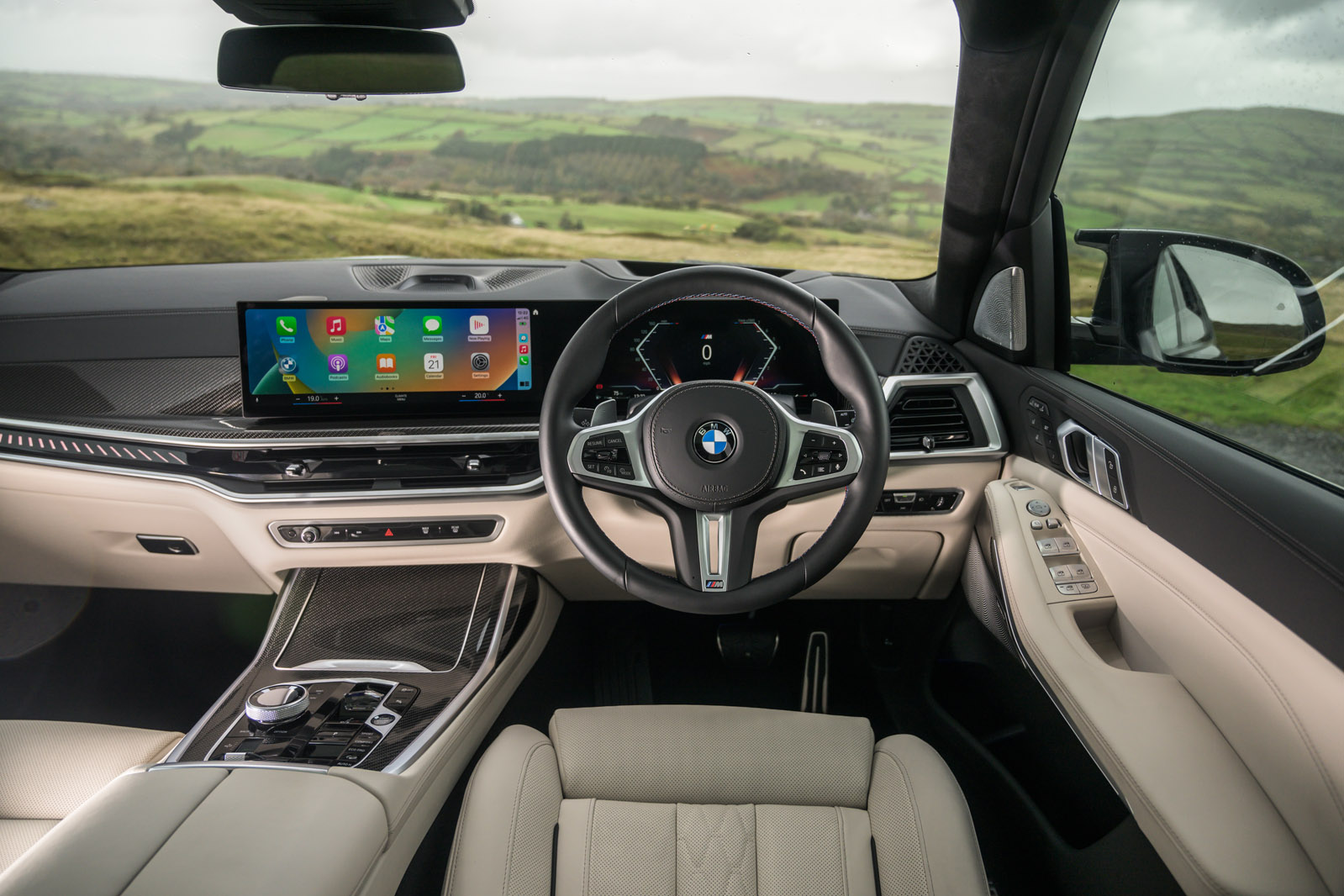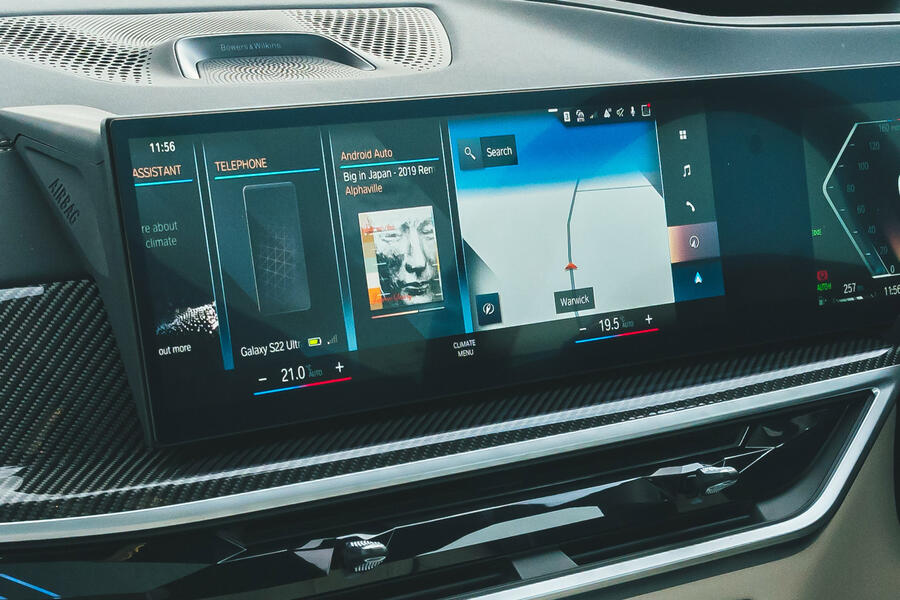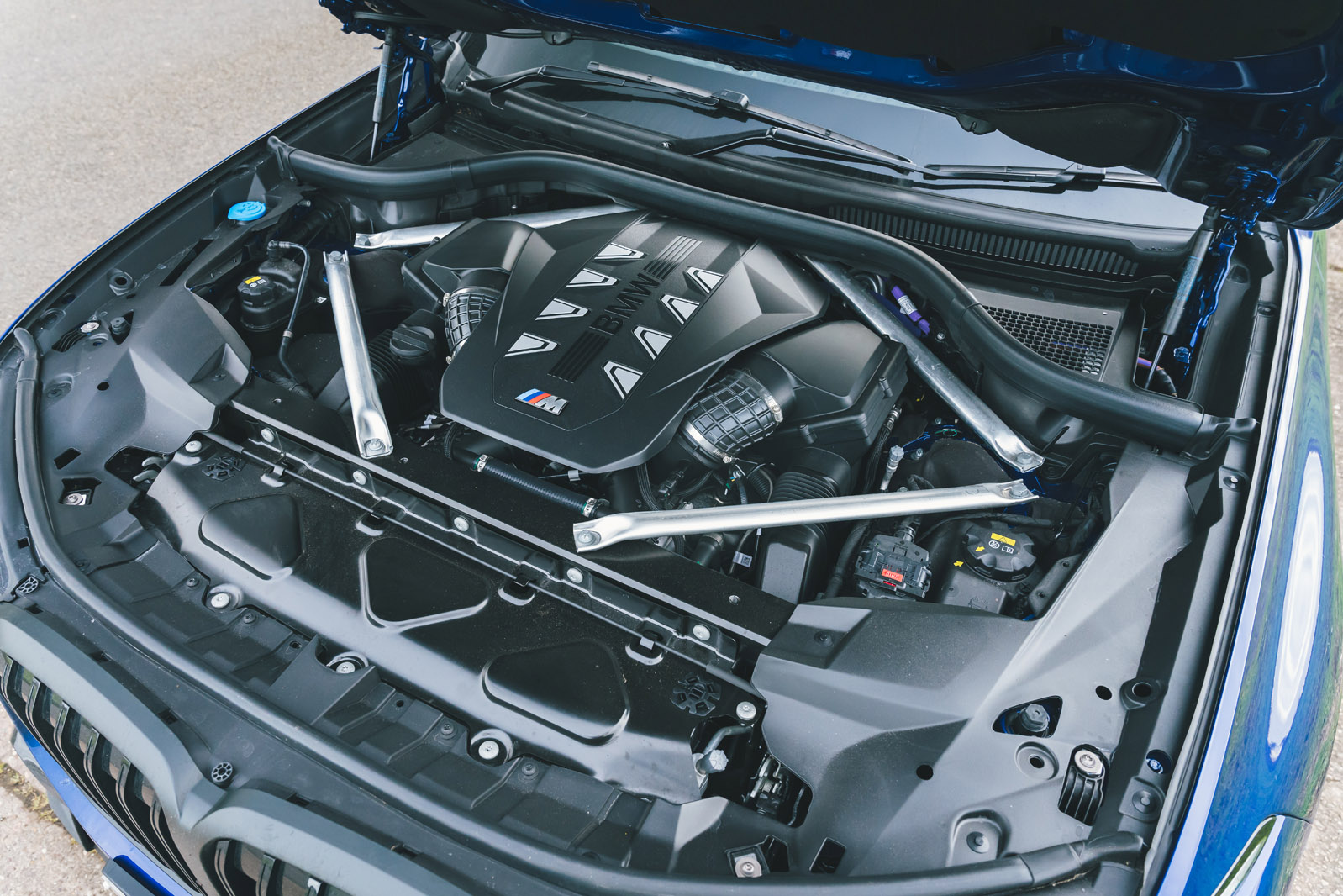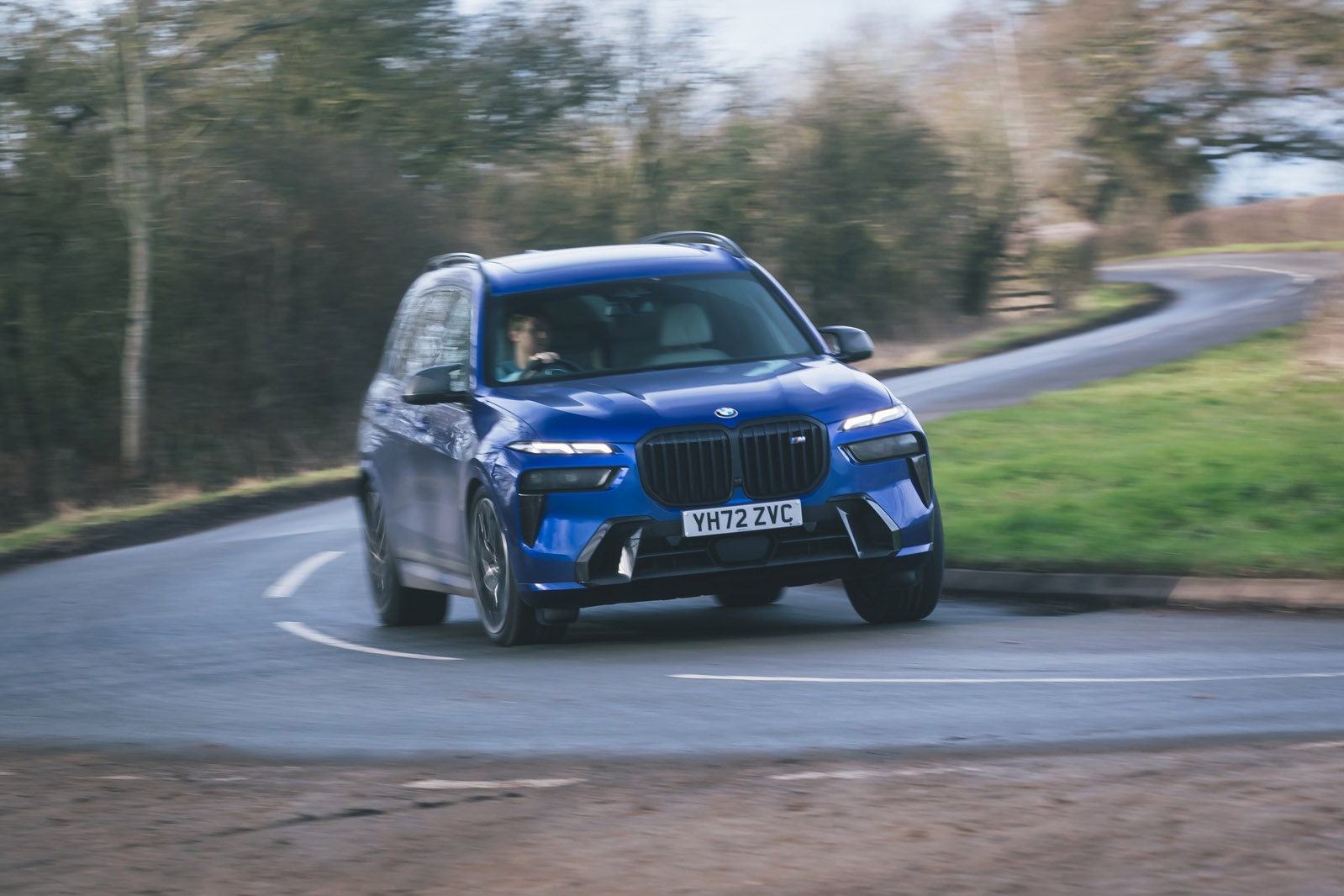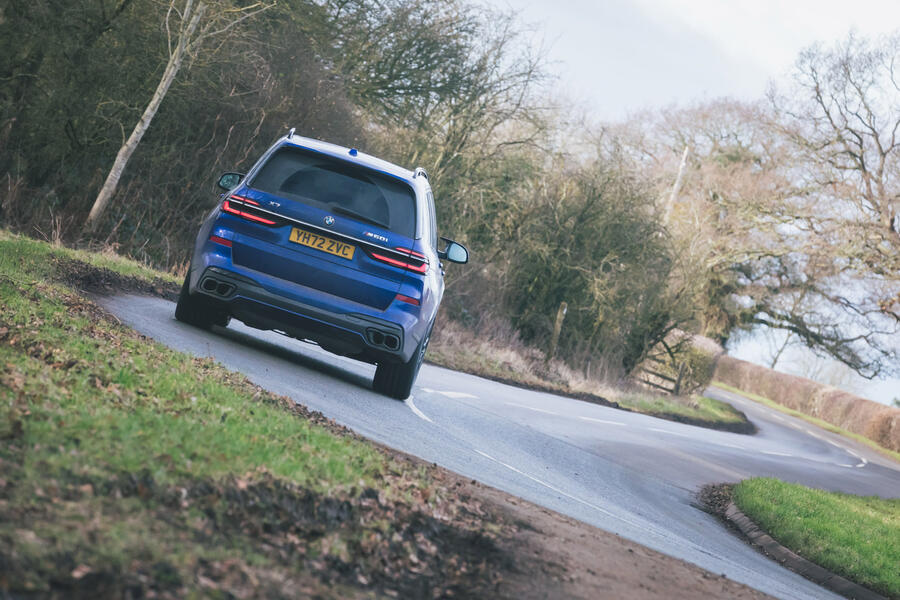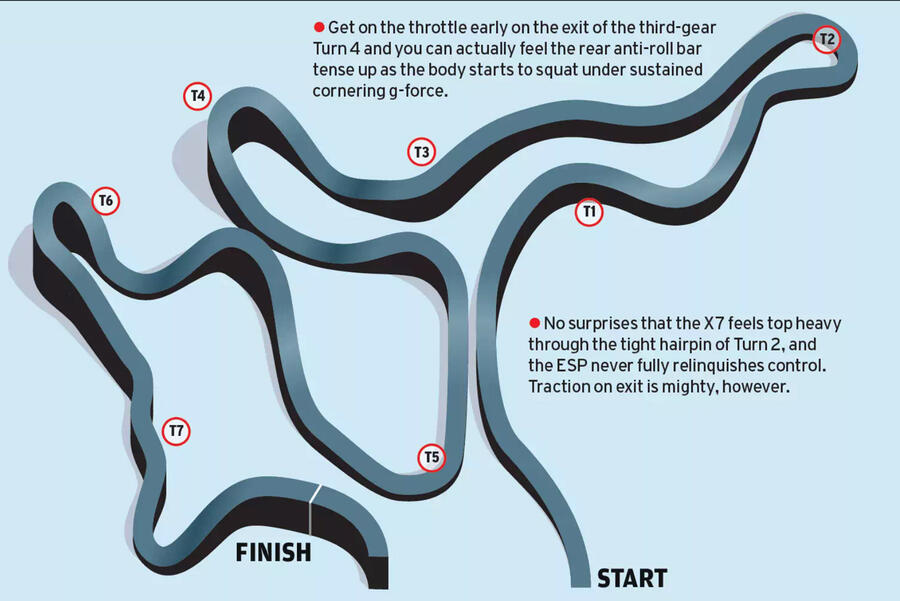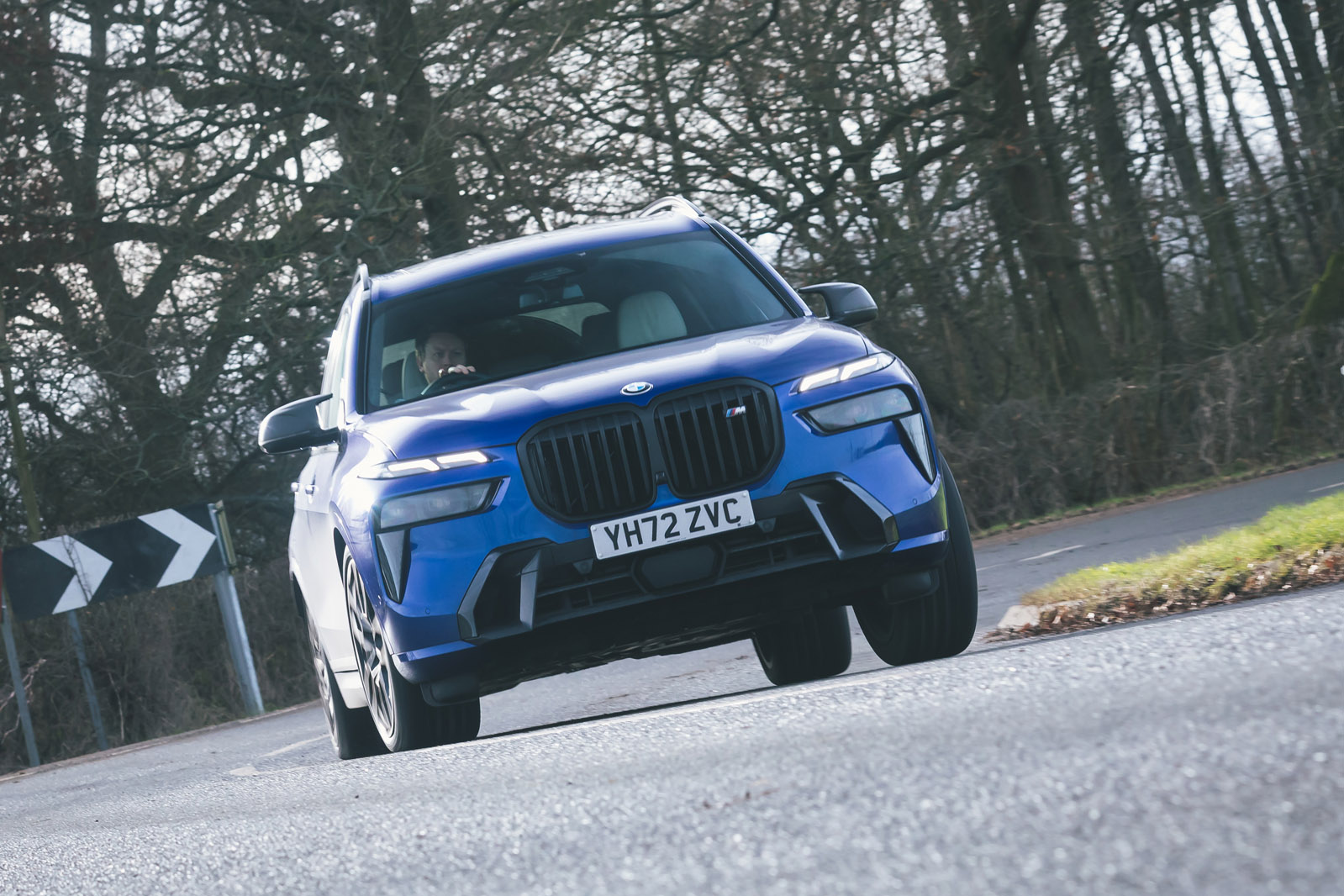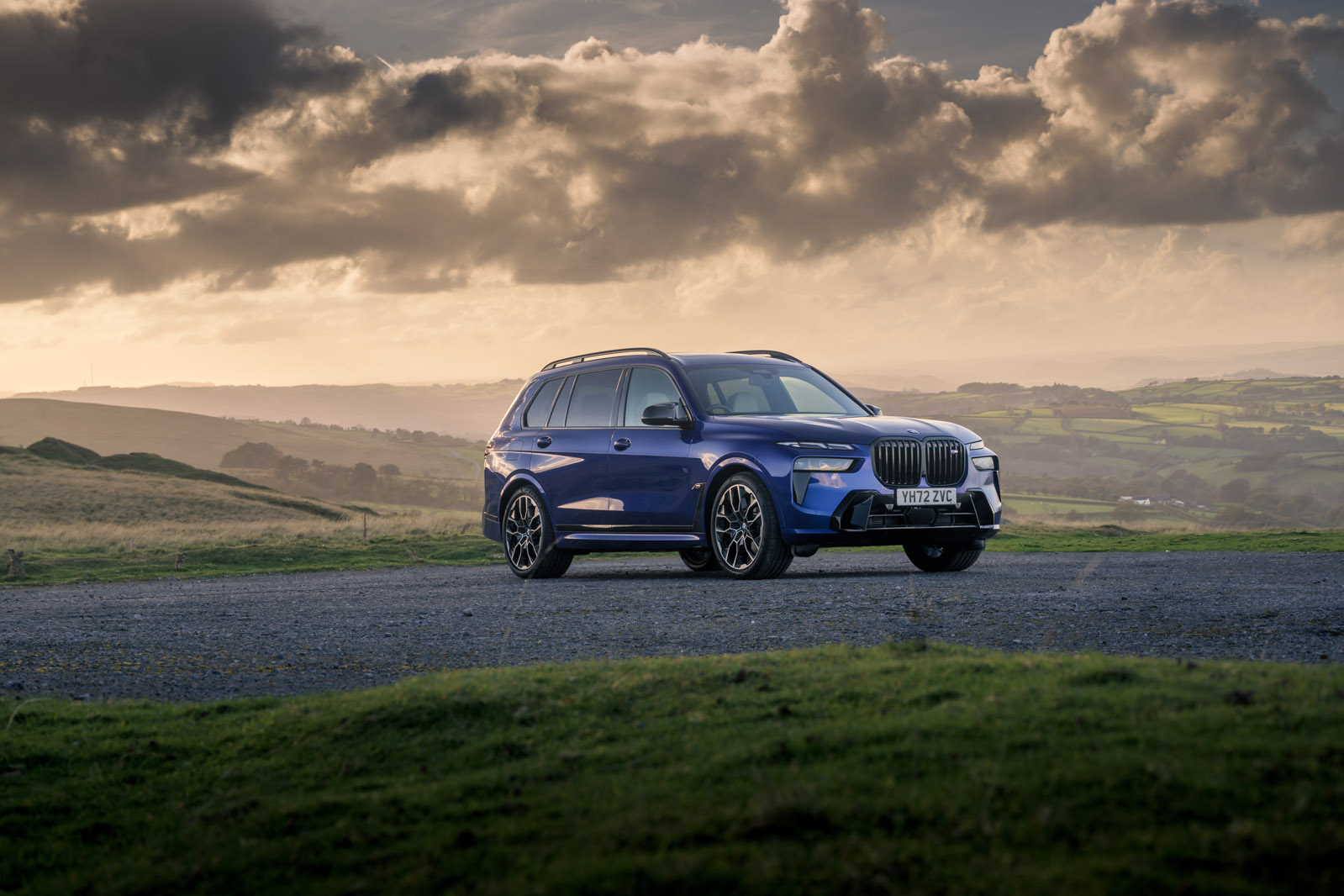Nobody could dispute that BMW has got the bit firmly between its teeth concerning the business of brash, fast SUVs. How firmly is something that becomes apparent when you consider that the 523bhp, £109,000 BMW X7 M60i tested here isn’t even the fastest, brashest BMW SUV you can buy, or even the second-most – step forward the new M-bespoke 653bhp BMW XM and the recently upgraded 628bhp X5 M.
But, of course, the X7 M60i’s remit is not simply to be as fleet-footed and dynamically able as it’s possible for BMW to achieve. It must also be endlessly practical and lavishly comfortable. There is an overlap with the BMW 7 Series limousine here, which is an element neither of the hottest X7’s uber-powerful stablemates need worry about. They need only be fast and brash.
So who are the chief rivals of this wide-ranging SUV? Given this is such an expensive and niche recipe, there are a surprising number. Most notable is the latest Range Rover, the current class benchmark for both off-road marauding and rolling refinement back on terra firma. However, as a BMW and an M-lite one at that, the seven-seat X7 M60i needs to fight convincingly well on broader fronts. In dynamic terms, owners will expect it to be an alternative to the Porsche Cayenne, only with the all-round usability of Audi’s Q7 and the everyday opulence of the Mercedes GLS. In fact, there’s an argument to be made that, in V8-engined flagship M60i guise, the X7 has the toughest job in the segment. So can it rise to the occasion, or will it prove as divisive to drive as to look upon?


